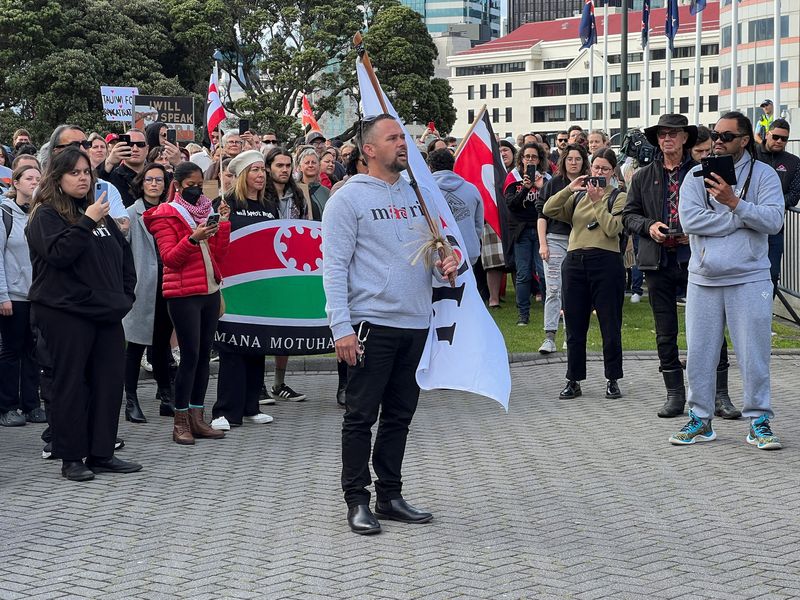By Lucy Craymer
WELLINGTON (Reuters) -Thousands of protesters gathered in New Zealand's city squares, motorway over-bridges and in front of the country's parliament on Tuesday to protest the new government's policies that they believe are racist.
The protest action was called for by political party Te Pati Maori and coincides with the opening of New Zealand's 54th parliament.
A new right-of-centre government of the National Party, New Zealand First and ACT New Zealand was elected following a vote in October, ending six years of rule led by the progressive Labour Party.
The three parties' new coalition agreement outlines policies to wind back the use of Maori language, review affirmative action policies and assess how the country's founding treaty document is interpreted in legislation.
"This is not a protest, this is an activation," Te Pati Maori co-leader Rawiri Waititi told Wellington protesters who marched through the city to the country's distinctive Beehive parliament building. "Make our voices heard, let our voices fly and be proud to be who we are today."
New Zealand police said there had been traffic disruptions in a number of cities, but these had now eased as protests concluded. Two people involved in the protests had been arrested, police said.
Kathy Hughes, 31, said she had come to the early morning Wellington march because of the concerns around what the new government wanted to do.
"I care deeply about the Kaupapa - worried about lots of things from the incoming government and lots of the changes," Hughes said, referring to Maori values and culture.
David Seymour, leader of libertarian party ACT New Zealand, said in a statement the protest was just theatrics when New Zealanders just want their government to get on with fixing the many issues the country is dealing with.
New Zealand's parliament was opened with parliamentarians swearing an oath to Britain's King Charles III.

Te Pati Maori's six parliamentarians broke with protocol, opting to stay in their seats and swear allegiance first to their grandchildren and young people and to the country's founding document, the Treaty of Waitangi, before moving to the front to swear the oath to King Charles.
Parliamentarians must swear the oath to be a member of parliament.
